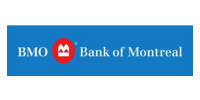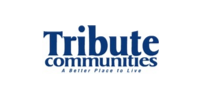Young Canadians are realizing the benefits of an income property
Clearly, there are a number of tax benefits that make an income property worthwhile (as long as you understand all the tax implications). And while the number crunching can take you in various directions, the bottom line paints a rewarding outcome. Which is why millennials are becoming landlords and benefiting from the very strong supply and demand dynamics of today’s market.
Real estate statistics point to millennial Canadians as more likely to be landlords than other age groups. Indeed, the overall statistics express quite a bit about current trends and future trends.
- practically half of millennial homeowners are either already landlords or plan to be
- almost three-quarters of homeowners believe that real estate can provide an income
- twice as many millennials as boomers would choose to buy a rental income property
- more than half of all landlords believe that an income property is well worth the “pain”
Amongst other reasons, the growing interest in buying an income property has much to do with offsetting housing costs, while building equity at the same time. And for a majority of landlords, even a “negative cash flow” scenario can offer tax deductions that make the income property a good investment. All this, of course, must be valid and lawful, and in compliance with
CRA rules.
Understanding rental property income and CRA tax implications
Regardless of age, it’s important for an income property owner to understand the various tax implications of ownership. And that includes everything from deducting capital expenses, to deducting operational expenses, to benefitting from various government tax rebates. Here, it’s wise to get advice from a knowledgeable realtor, lawyer, and even a reputable tax specialist.
Getting familiar with the New Residential Rental Property Rebate
Since more millennials are becoming
landlords, it’s wise to get familiar with the
New Residential Rental Property Rebate. This rebate is open to landlords who rent out their newly purchased real estate property. The NRRP Rebate is available right after the real estate transaction has closed.
The rebate is offered to new landlords who paid HST on a property purchase that will be slated for rental. There is a registration process and there are specific guidelines. And as a government backed rebate, the application must be submitted correctly, on time, and with backup documents.
Like other incentive programs, the regulations can quickly get confusing. In fact, an improper or misfiled application can potentially jeopardize the entire rebate. Beyond any other guidelines, landlords must remember that “renting out” means at least one full one-year of signed tenancy.
Working with the tax rebate specialists at Rebate4U
The fact that millennials are becoming landlords also means that there’s a learning curve. And with real estate tax rebates, that learning curve could be steep. At Rebate4U, our in-house experts have years of expertise dealing with a wide range of government backed rebate programs.
With the experts at Rebate4U, application paperwork is submitted properly and on time. There are no loose ends. Whatever the type of rebate, our people manage the complete process - from application, to follow-up, to rebate cheque. We do our best to get the highest possible rebate.
When you work with Rebate4U, everything is streamlined and straightforward. It’s particularly beneficial for first time landlords who are getting familiar with everything. Learn more by calling our toll free number at 1-800-610-4510 or by visiting our company website at
www.rebate4u.ca .











